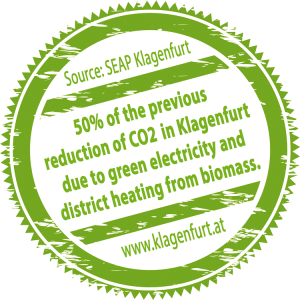Protecting the climate is one of the toughest challenges we face this century. Avoiding fossil fuels, such as oil and gas, is one of the main goals of all 197 countries.
On signing the Paris Agreement, the global community of states, including Carinthia, is obliged to implement the agreed goals. If we are serious about taking responsibility for present and future generations, this means turning away from coal, oil and natural gas and switching to renewable energies.
All three biomass cogeneration plants located in Klagenfurt and Liebenfels guarantee security of supply with district heating and green electricity and thus make a considerable contribution to climate protection.


